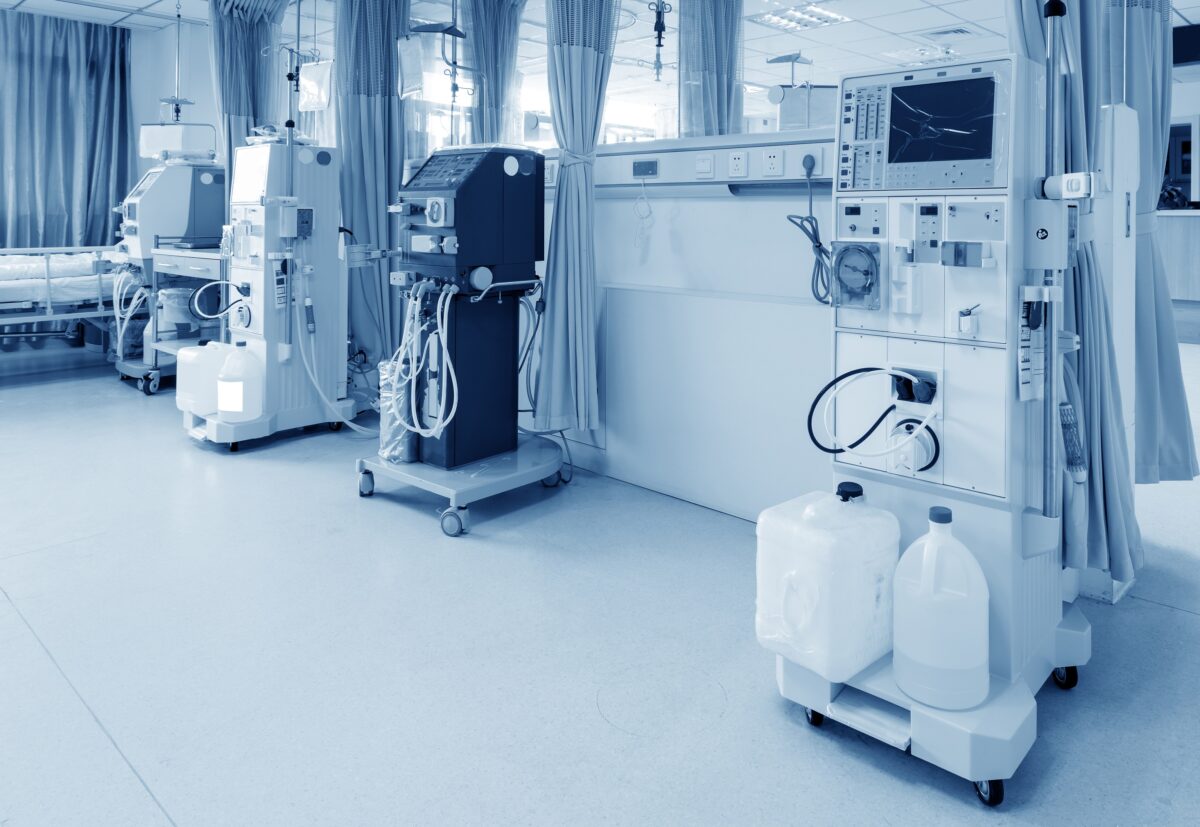Body weight monitoring
When the kidneys fail they cannot eliminate enough fluid from the body and dialysis must perform this duty. All hemodialysis patients will have a ‘dry weight’. This dry weight is your weight without the excess fluid that builds up between dialysis treatments. Fluid is removed during dialysis to return you to your dry weight by the end of the treatment. Ideally, the goal is to target a weight where you will be normally hydrated, not feel thirsty and feel comfortable.
The build-up of fluid can lead to complications such as breathlessness and high blood pressure, so it is important to carefully monitor body weight and to control excess fluid build-up. Most patients will be weighed and have their blood pressure taken just before the dialysis session. They will also be checked for signs of excessive fluid buildup between treatments which includes breathlessness and swollen hands and feet.
At the end of dialysis, blood pressure and weight will be measured again and an assessment made of whether the post weight appears to be satisfactory.
It is important that this weight is regularly reviewed because a small gain) decrease) in weight can lead to symptoms such as faintness, nausea and low blood pressure during the treatment.
Caring for the vascular access
It is important to take care of your fistula or graft access to prevent complications. Complications can occur even if you are careful, but are much less common if you take a few precautions:
• Wash the access with soap and warm water each day and always before dialysis. Do not scratch the area or try to remove scabs.
• Check the area daily for signs of infection, including warmth and redness.
• Check that there is blood flow in the access daily. There should be a vibration (called a thrill) over the access. If this is absent or changes, notify your dialysis clinic.
• Take care to avoid traumatizing the arm where the access is located; do not wear tight clothes or jewelry, do not carry heavy items and try not to sleep on the arm. Do not allow anyone to take blood or measure blood pressure on this arm.
The treatment
Dialysis treatments can be long and boring. You will be able to read or sleep during treatment, and you usually have access to a television. You may have access to the internet so that you can use a laptop or tablet.
There are some restrictions: eating and drinking may be limited whilst you are on treatment because it can cause your blood pressure to drop.

